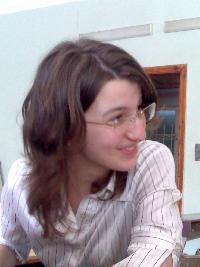| Pages in topic: [1 2] > | Examples of dialect and non-standard language in French and Russian literature Thread poster: Callum Walker
|
|---|
Callum Walker 
United Kingdom
Local time: 05:17
Russian to English
+ ...
Dear Fellow ProZians,
For those native Francophones and Russophones out there, and indeed any other non-natives with knowledge in the field, I was wondering if anyone might be able to suggest some works of literature from francophone countries or russophone countries that use non-standard spelling and dialect (in the form of eye dialect, for example, or certain other linguistic markers such as non-standard vocabulary etc.)?
Examples of this are: "Trainspotting" (Irvine ... See more Dear Fellow ProZians,
For those native Francophones and Russophones out there, and indeed any other non-natives with knowledge in the field, I was wondering if anyone might be able to suggest some works of literature from francophone countries or russophone countries that use non-standard spelling and dialect (in the form of eye dialect, for example, or certain other linguistic markers such as non-standard vocabulary etc.)?
Examples of this are: "Trainspotting" (Irvine Welsh) [in English], "Zazie dans le metro" (Raymond Queneau) [in French], "Мой зять украл машину дров" (Shukshin) [in Russian].
Can anyone think of any others to add to this list? I would be particularly interested to hear if there are any works that make use of 'hybrid' dialects in Russia such as Surzhyk (Суржик) and Trasianka (Трасянка). But I would be interested in hearing other examples of dialect (in particular eye dialect, i.e. non-standard spelling to reflect pronunciation, as in 'Trainspotting') in literature (ideally not poetry, as poetry is an entirely different discipline!).
I'm soon due to form my final research proposal for a PhD in Translation where I will be looking at dialect and non-standard language and techniques used by translators to translate such language (both through looking at existing translations and also considering theoretically how to approach un-translated works).
Any input would be very much appreciated.
Many thanks in advance.
Callum ▲ Collapse
| | | |
Hello Callum,
Here are some stories containing Surzhyk or written entirely in Surzhyk. Practically all of them are humorous, but as far as I know dialects are used for humorous effect in most cases anyway. Hope this helps!
Лесь Подеревянский – пьесы "Гaмлєт", "Цiкaвi Дослiди", "Пaвл... See more Hello Callum,
Here are some stories containing Surzhyk or written entirely in Surzhyk. Practically all of them are humorous, but as far as I know dialects are used for humorous effect in most cases anyway. Hope this helps!
Лесь Подеревянский – пьесы "Гaмлєт", "Цiкaвi Дослiди", "Пaвлiк Морозов" и др.
http://www.doslidy.kiev.ua/
Богдан Жолдак - сборники «Антиклімакс», „Топінамбур, сину. Extra drive stories”, новеллы "Маня чи Таня", "Про ізвращенцьов", "Яловичина", "Нікада впрєдь".
Ю. Ключ - роман «Неофитка»
http://www.liter.net/act/2000-05-13_Artikl/
Александр Ирванец (Олександр Ірванець) - роман "Рівне/Ровно (стіна)"
http://www.kobza.com.ua/index.php?path=rizne_kulture&file_main=2002_05_27_01.php ▲ Collapse
| | | | Joshua Pepper 
United Kingdom
Local time: 05:17
French to English
+ ...
| A couple of ideas | Oct 18, 2011 |
All of the works by Raymond Queneau are in a similar style, and very interesting linguistically (in my humble opinion).
It is perhaps worth investigating the works of Boris Vian too?
Both of these are more centered around neologisms/playing with language than any particular dialect though (see Oulipo).
I'll wrack my brains and see if I can find anything else.
I'm sure there are plenty of examples of literature with specific characters that speak specific dialects.... See more All of the works by Raymond Queneau are in a similar style, and very interesting linguistically (in my humble opinion).
It is perhaps worth investigating the works of Boris Vian too?
Both of these are more centered around neologisms/playing with language than any particular dialect though (see Oulipo).
I'll wrack my brains and see if I can find anything else.
I'm sure there are plenty of examples of literature with specific characters that speak specific dialects. Not that any spring to mind though, I'm a bit rusty.
This may be unrelated (and very obvious), but perhaps the large use of French in Russian literature is also of interest to you (I'm thinking of Lolita by Nabokov). Didn't he translate it himself (to English I believe)? ▲ Collapse
| | | |
I don't know about dialects but could literature written in slang (argot) be of any interest to you? In this case, San-Antonio books by Frédéric Dard could be quite interesting: they are full of slang, neologisms and puns. Not always easy to understand, even for native speakers.
| | |
|
|
|
Kirsten Bodart 
United Kingdom
Local time: 06:17
Dutch to English
+ ...
| This may be interesting | Oct 18, 2011 |
but it is not first hand...
I am part of a literature forum and a Russian native once mentioned that Chekhov's characters sometimes speak weird Russian. I think the person in question did not mean dialect as such, or different spelling, but weird constructions and vocab. I think we were speaking of his play 'The Three Sisters', but he/she extended it to more of his work. I may be wrong though.
Hugo has a kind of 'essay' or whatever you can call it in Les Misérables on... See more but it is not first hand...
I am part of a literature forum and a Russian native once mentioned that Chekhov's characters sometimes speak weird Russian. I think the person in question did not mean dialect as such, or different spelling, but weird constructions and vocab. I think we were speaking of his play 'The Three Sisters', but he/she extended it to more of his work. I may be wrong though.
Hugo has a kind of 'essay' or whatever you can call it in Les Misérables on Argot in general. That may be of interest to you.
I seem to remember that at the start of Twenty Years After (Vingt Ans Après) that there is a love rival of d'Artagnan or maybe the husand of his landlady or something who is Swiss and speaks in a strange French complete with diferent consonants. Only a few sentences, unfortunately.
That's all I can come up with for now. ▲ Collapse
| | | | MariyaN (X) 
United States
Japanese to Russian
+ ...
| I would suggest | Oct 18, 2011 |
Babel ("Конармия", "Одесские рассказы") and Zoschenko (short stories and a series of stories titled "Рассказы Назара Ильича господина Синебрюхова"). Babel's stories also contain plenty of dialect mixed with argot, although the latter is partly outdated nowadays since the events in "Одесские рассказы", for example, take place in the pre-1917 Russian Empire.
| | | | | How come I forgot Wallon? | Oct 19, 2011 |
There is an extensive literature in Wallon. However, I'm not sure whether Wallon should be considered as a dialect or a distinct language...
Anyway, here is a list of Walloon authors from Wikipedia:
Willy Bal
Gabrielle Bernard
Nicolas Defrêcheux
Joseph Dejardin
Chantal Denis
Eugène Gillain
Arthur Masson
Édouard Remouchamps
Lucien Somme
Roger Viroux
| | | | Callum Walker 
United Kingdom
Local time: 05:17
Russian to English
+ ...
TOPIC STARTER | Thanks for all of your comments... keep them coming! | Oct 19, 2011 |
@Galina: Thanks for the suggested works in Surzhyk. I have actually read on my e-travels that Gogol's "Evenings on a farm near dikanka" (Вечера на хуторе близ Диканьки / Вечори на хуторі біля Диканьки) makes good used of Surzyk. I might refer to this set of short stories initially as Gogol is obviously more famous and in some ways more "quirky", which always makes for interesting reading. I will still look through your suggestions and see if th... See more @Galina: Thanks for the suggested works in Surzhyk. I have actually read on my e-travels that Gogol's "Evenings on a farm near dikanka" (Вечера на хуторе близ Диканьки / Вечори на хуторі біля Диканьки) makes good used of Surzyk. I might refer to this set of short stories initially as Gogol is obviously more famous and in some ways more "quirky", which always makes for interesting reading. I will still look through your suggestions and see if there is anything useable there.
@ Joshua: I did consider looking at Queneau in more depth, and did actually consider focusing almost entirely on Queneau for the French aspect of my work. Given that his work is widely translated it can serve as a good starting point for my research into translation in practice. Similarly he does also have several works that have not been translated (I believe), which would also allow me to muse over potential theoretical applications of my findings.
I believe the prevalence in Russian literature of the French language is something of a cultural phenomenon of the middle and upper classes in 19th Century Russia. It is not really my area of expertise in Russian literature and history (I tend to focus more on 20th century), but I believe it was largely to do with status and outward appearance. The Russians then had something of a penchant for French as it made them appear educated and cultured, in direct contrast with their perception of the 'coarse' and 'crude' style of the Russian language (a language which, for the record, I think is a beautiful language in its own way).
@ Jehanne: Thanks for your suggestions too. Whilst the idea of Walloon would indeed be interesting, as you say, it is not so much a dialect as verging on a separate language (or at least language continuum) entirely. YOur comments about argot are certainly useful though, as dialect can extend to differing forms of register. If you think about it, the language that a 16 year old would speak would markedly differ from that of an 80 year old (in most instances), whether this be through the use of complex slang phrases or through entirely different (to many, wrong) application of grammar rules. Ultimately, the work I have already done on 'Zazie dans le métro' is largely focused on argot and, more generally, slang.
@ Kirsten: Thanks for your comments regarding Chekhov. I will certainly look into that. I hadn't considered Chekhov actually. I do have a book of his short stories in Russian somewhere, so I might dig it out and see if there are any in there. As for 'Three sisters', I only have that in English, so i might have a look and see if there are any clues in there as to if there is non-standard language in the original Russian. (Perhaps someone who has read the work in Russian could comment on this?)
I will look for the reference you made to Hugo's essay on argot. Again, I've got a copy of 'Les Mis.' somewhere, so I'll have a look for that.
And your reference to 'Twenty Years After' is certainly interesting. I will have a look at that too. It doesn't matter if it is only a few lines - there are quite a lot of books that I'm extracting examples from, and in many ways if the extracts and limited in length it will make it easier to analyse them.
@ Mariya: Thanks for your comments. I hadn't thought of Babel. But I will do some research into the works you suggested and see what I can find. Many thanks for those! ▲ Collapse
| | |
|
|
|
Callum Walker 
United Kingdom
Local time: 05:17
Russian to English
+ ...
TOPIC STARTER
Joshua Pepper wrote:
(I'm thinking of Lolita by Nabokov). Didn't he translate it himself (to English I believe)?
Just as an aside, Joshua, Nabokov originally wrote Lolita in English but translated it himself into Russian, which is a rather odd way to do things for a native Russian (although he was very much considered multilingual).
| | | | Kirsten Bodart 
United Kingdom
Local time: 06:17
Dutch to English
+ ...
| On Hugo and Dumas | Oct 19, 2011 |
I've had a look in my library and Hugo's essay is in Part IV L'Idylle Rue Plumet et l'Epopée Rue Saint-Denis, in Book VII L'Argot.
Although it may be a little too much suited to his own purpose (misery and argot being the language of misery itself), he had sources he drew from. Guy Rosa says Hugo based himself essentially on books by de Vidocq (Mémoires and Les Voleurs) and also on an anonymous work from 1829 Des Mémoires d'un Forban Philosophe as well as his own observations, c... See more I've had a look in my library and Hugo's essay is in Part IV L'Idylle Rue Plumet et l'Epopée Rue Saint-Denis, in Book VII L'Argot.
Although it may be a little too much suited to his own purpose (misery and argot being the language of misery itself), he had sources he drew from. Guy Rosa says Hugo based himself essentially on books by de Vidocq (Mémoires and Les Voleurs) and also on an anonymous work from 1829 Des Mémoires d'un Forban Philosophe as well as his own observations, contained in his notes.
Hugo, in that piece, also mentions though that in Le Dernier Jour d'un Condamné he featured a thief speaking Argot. He also mentions Balzac and Eugène Sue as other writers who did the same before him and were criticised. Guy Rosa elaborates by mentioning that Balzac's Splendeurs et Misères des Courtinsanes mentions a somewhat similar digression as Hugo's on the subject although a little shorter. He also mentions Eugène Sue's work Les Mystères de Paris.
Though Hugo's thing is only really an essay he projected his philosophy on, he did give a few examples of words, sentences and verses.
I also had a look in Dumas's work and it's in chapter 6 D'Artagnan à Quarante Ans. It's quite a conversation actually. I didn't think it was so long, but I read it quite a while ago. Still, it's a treat. ▲ Collapse
| | | | yanadeni (X) 
Canada
Local time: 00:17
French to Russian
+ ...
Russian:
Исаак Бабель - Одесские рассказы.
The language of this book is Russian, but the it's very special. The Odessa Jewish speak a different way. Everything is different: vocabulary, syntax, style.
Слава Сэ - Сантехник, его кот, жена и другие подробности
Very unusual style.
There is a book published, and the same texts are in this blog: pesen-net.livejournal.com/
... See more Russian:
Исаак Бабель - Одесские рассказы.
The language of this book is Russian, but the it's very special. The Odessa Jewish speak a different way. Everything is different: vocabulary, syntax, style.
Слава Сэ - Сантехник, его кот, жена и другие подробности
Very unusual style.
There is a book published, and the same texts are in this blog: pesen-net.livejournal.com/
French (Canadian): Michel Tremblay - Chroniques du Plateau Mont-Royal
A bright example of "joual".
Creole: Danny Lafferière
Probably Creole is an independent language now, but it contains so many French words and structures that is almost easily understandable by francophones. Not all the books by this author are in Creole. He writes mostly in standard French. He has a book with small verses, like Japanese haiku or tanka, in Creole. Very beautiful.
[Edited at 2011-10-19 16:51 GMT] ▲ Collapse
| | | | Kirsten Bodart 
United Kingdom
Local time: 06:17
Dutch to English
+ ...
| I wouldn't know where to look | Oct 19, 2011 |
but couldn't you do something with Cajun or Louisiana French?
There should still be traditional songs in this dialect. It is still spoken, but probably not enough anymore to warrant books in it, although you should maybe find some small publications.
[Edited at 2011-10-19 20:34 GMT]
| | |
|
|
|
Jean-Pierre Artigau (X)
Canada
Local time: 00:17
English to French
+ ...
| French Canadian | Oct 19, 2011 |
See Jacques Godbout, Salut Galarneau (French as spoken by lower-class Montreal French Canadians in the 1940s and 50s).
| | | | yanadeni (X) 
Canada
Local time: 00:17
French to Russian
+ ...
new tendencies in Russian
Perashki
http://www.perashki.ru/about/
A new kind of non-rhymed humoristic poems with a non-standard syntax
Padonkaffsky (Olbanian) jargon
http://goo.gl/sWAam
Extremely popular on Internet. The vocabulary and style are strongly affected. The grammar and... See more new tendencies in Russian
Perashki
http://www.perashki.ru/about/
A new kind of non-rhymed humoristic poems with a non-standard syntax
Padonkaffsky (Olbanian) jargon
http://goo.gl/sWAam
Extremely popular on Internet. The vocabulary and style are strongly affected. The grammar and syntax remain Russian.
Btw, the above word "perashki" is in Padonkaffsky. ▲ Collapse
| | | | yanadeni (X) 
Canada
Local time: 00:17
French to Russian
+ ...
Galina, aren't these in Ukrainian?
| | | | | Pages in topic: [1 2] > | To report site rules violations or get help, contact a site moderator: You can also contact site staff by submitting a support request » Examples of dialect and non-standard language in French and Russian literature | Protemos translation business management system | Create your account in minutes, and start working! 3-month trial for agencies, and free for freelancers!
The system lets you keep client/vendor database, with contacts and rates, manage projects and assign jobs to vendors, issue invoices, track payments, store and manage project files, generate business reports on turnover profit per client/manager etc.
More info » |
| | Trados Business Manager Lite | Create customer quotes and invoices from within Trados Studio
Trados Business Manager Lite helps to simplify and speed up some of the daily tasks, such as invoicing and reporting, associated with running your freelance translation business.
More info » |
|
| | | | X Sign in to your ProZ.com account... | | | | | |








